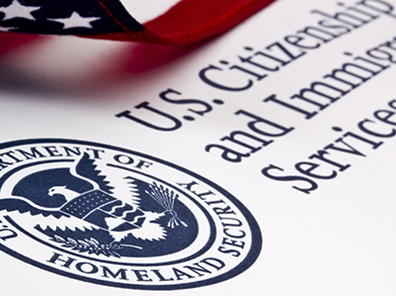
Recently, I cast doubt on the spin put on a story in Law360, having to do with the U.S. Citizenship and Immigration Services (USCIS) decision to close its offices abroad. The reason is that, in my opinion, it advanced a facile argument by members of the private bar that the closure would have an adverse impact on "expats".
Once again, I find myself focusing on a Law360 story, which captions itself as analysis, for the same reasons: spin. I get that Law360 caters to attorneys, and that Immigration Law360 (one of the particular focus areas of the overall site) caters specifically to members of the private immigration bar. But even so, it seems to me that when arguments become too convenient or too facile, in the long run they erode the credibility of the site.
This time, the story focuses on processing delays at USCIS. The headline and leading paragraph of the story (partially behind a paywall) say this:
Processing Delays Reveal USCIS Stretched To Its Limits
Law360 (March 13, 2019, 9:13 PM EDT) -- Wait times for numerous petitions before U.S. Citizenship and Immigration Services have continued to climb this fiscal year, reflecting what attorneys describe as an agency that has spread its resources too thinly to keep up with the Trump administration's demand for increased vetting of foreign nationals.
There is considerable evidence that delays have indeed increased among virtually all applications and petitions dealt with by USCIS, which is the agency within the Department of Homeland Security (DHS) responsible for adjudication of immigration and naturalization benefits.
But my immediate reaction to the entire article is one of unbridled skepticism. Here's why:
First, it's well to remember that our world changed dramatically on September 11, 2001. From that day forward, all immigration and citizenship benefits should have been subjected to more rigorous vetting processes. That they were not became self-evident with the accretion of proof after proof over the course of years that aliens who supposedly had been through background checks either engaged in horrific terrorist acts (see here and here), committed serious criminal offenses, or concealed their criminal histories and nonetheless were accorded resident status and thereafter citizenship. Thus, to somehow put current delays on President Trump's doorstep is an absurdity. The agency, under the leadership named by this administration, has simply started doing what it ought to have been doing all along.
Second, it's also worth remembering that even though the border crisis clearly has adverse impacts on the Border Patrol, Customs and Border Protection inspectors at ports of entry, and Immigration and Customs Enforcement agents, less apparent but undeniably true is the fact that USCIS is also adversely affected. This is because the number of illegal border-crossers claiming a fear of return is at all-time highs, and USCIS officers are the ones charged with conducting the credible fear interviews that are preliminary to the actual asylum adjudication. Furthermore, asylum is an unfunded program. No fees are charged, and the agency receives little in the way of appropriations. The two-fold consequence is that not only are more USCIS officers tapped to go on detail and handle the credible fear/asylum cases at the expense of other work, but the Examinations Fee Account that funds the entire agency is bearing the exorbitant costs of the credible fear/asylum program at the border, thus eating up monies that technically are supposed to be used to conduct the adjudications for which fees are collected.
Third, even when fees are collected, if a program experiences ballooning applications — as has happened in recent years with temporary worker programs — the ability to hire, train, and place additional adjudicating officers will always lag behind the actual number of applications, thus resulting in backlogs that take a while to even out. But that relies on the number of applications shrinking back to "normal" figures at some point, something that almost never happens where immigration benefits programs are concerned. Members of Congress treat immigration programs like pork, and often accede to the ever-expanding demands of various agricultural, industrial, and business entities for larger pools of cheap foreign labor in return for support and contributions.
I find it difficult to accept on its face any analysis that doesn't contemplate the many complex reasons for the growing backlogs at USCIS, including the few I've addressed here. These backlogs seem to me more a combination of belated accountability, and a reflection of the out-of-control aspect of both legal and illegal immigration to the United States in the modern era, than any willful attempt on the part of the president or anyone else to impede the functioning of government.
One last point: That fee account I mentioned? It's huge; more than a billion dollars is sitting in it right now. While fiscal prudence is important and necessary, especially for a mostly unfunded agency that lives off of its fees, perhaps it's time for USCIS to undertake a careful review of its workforce needs and recalibrate accordingly.
